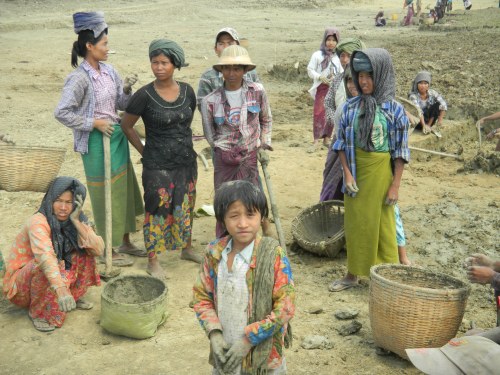AICS/MAE

Myanmar is located in Southeast Asia and covers an area of 676,577 Km2. The population is about 56 million inhabitants, of which 31% are in urban and 69% in rural areas. Myanmar is still an agricultural country and agriculture is the backbone of its economy, contributing about 35% to the formation of GDP and employing over 60% of the workforce.
Despite this important role of agriculture, there are areas in which inhabitants are subject to precarious living conditions characterized by food insecurity due to limited work opportunities. One of these is the Dry Zone, located in the central part of the country which represents approximately 10 - 13% of the total area. The Dry Zone has a population of 27% of the entire population.
The subsistence of the Dry Zone populations is highly dependent on the monsoon season, coming from the southwest, which provide the region with an irregular rainfall. The most recent survey on food safety in the Dry Zone conducted by the World Food Program (WFP) in February 2011 - in collaboration with several partners, including TDH Italia - highlighted that 40% of the population is vulnerable to food security and, among these, the most endangered range is composed of landless people, who live on occasional jobs, as well as small farmers. The most precarious conditions in terms of food safety have been found in areas that also include the Provinces of Yenanchaung and Natmauk, in which TDH Italia has been working since 2004.
The aim of the project is to strengthen the resilience of the rural communities of the Dry Zone of Myanmar against climate change. Planned activities will enable inhabitants to improve their nutritional and income conditions through diversification, the de-seasonalization of production activities and the optimization of the use of available environmental and economic resources.
The consequences of climate change will be addressed through a strategy that will act on three different but firmly interlinked levels:
The horticulture group of the Department of Agricultural Sciences of the Alma Mater Studiorum - Università di Bologna, will carry out scientific advice and training to increase the skills of public institutions (Yezin University in particular).
Collaborations:
The project, started in 2017, is financed by AICS and by Progetto Continenti, and is carried out by Terre des Hommes Italia, with the involvement of the Yezin University of Agronomic Sciences of Myanmar.